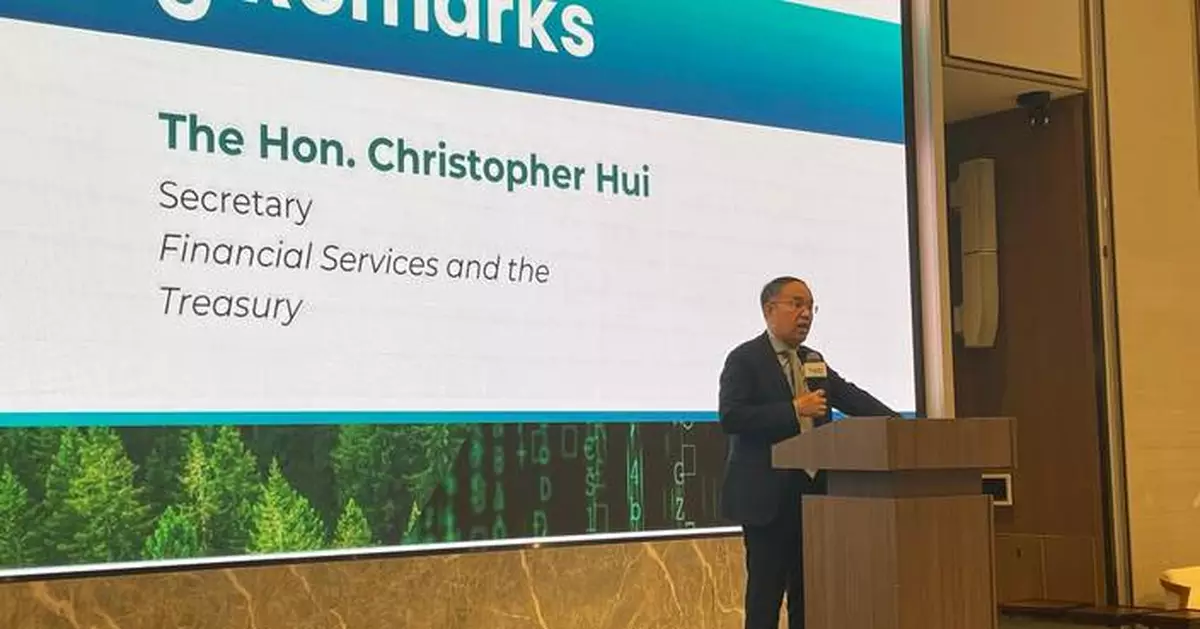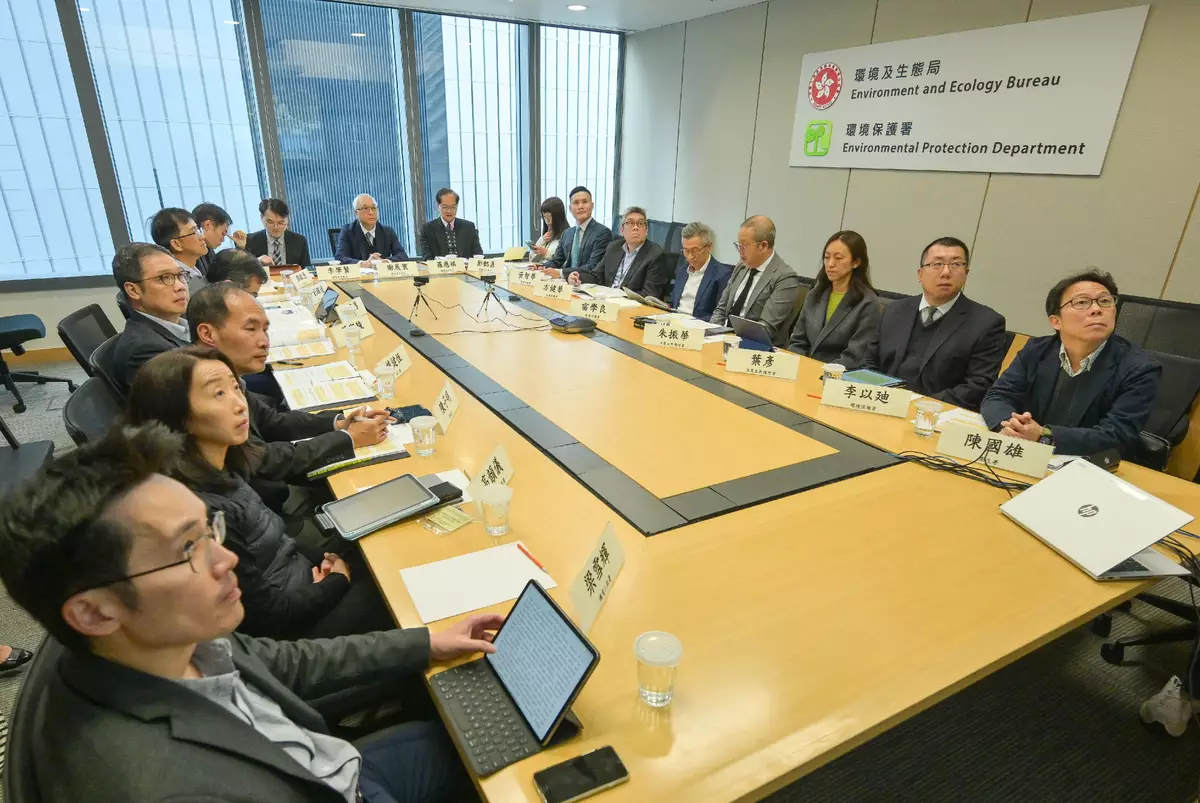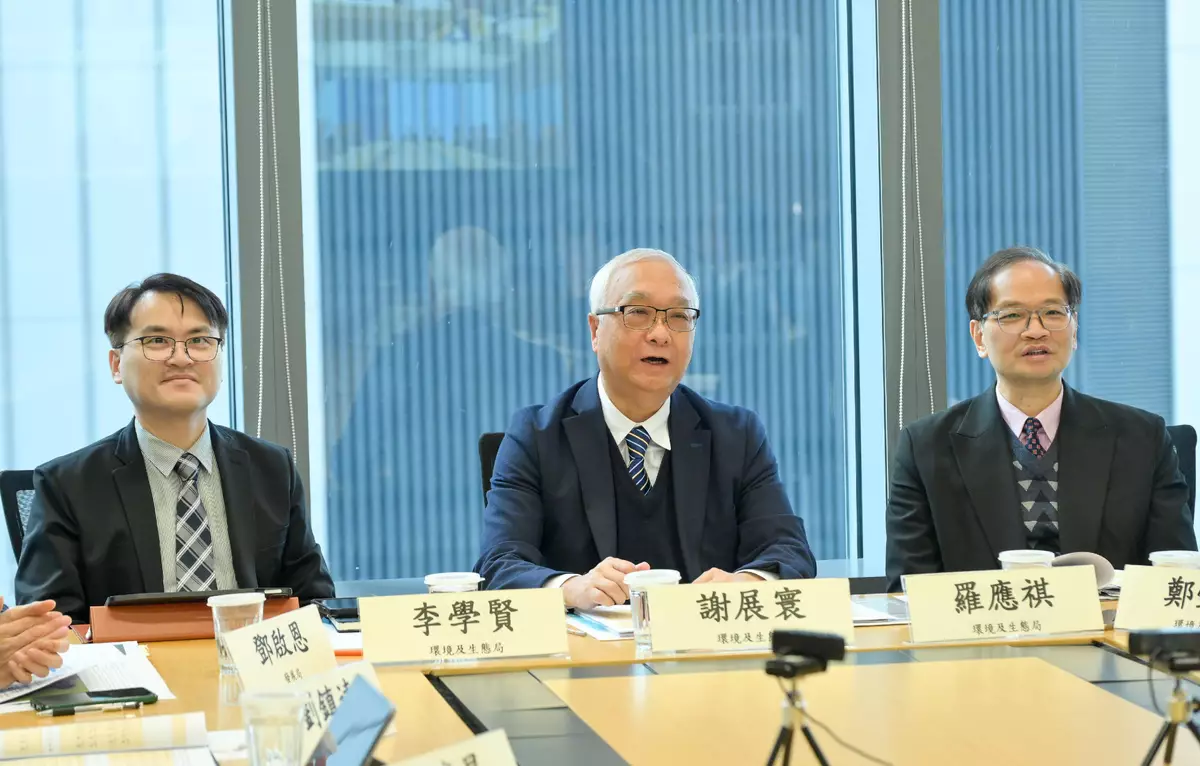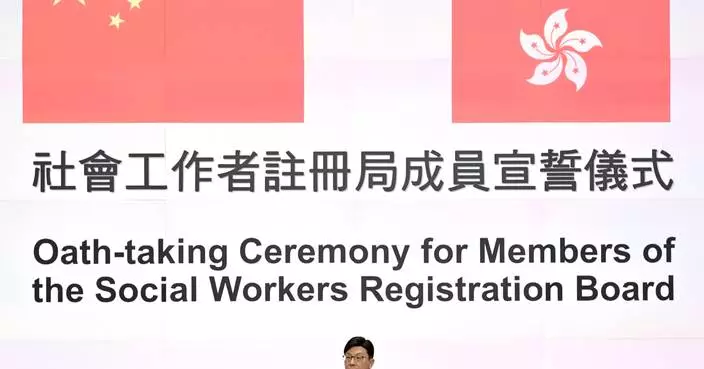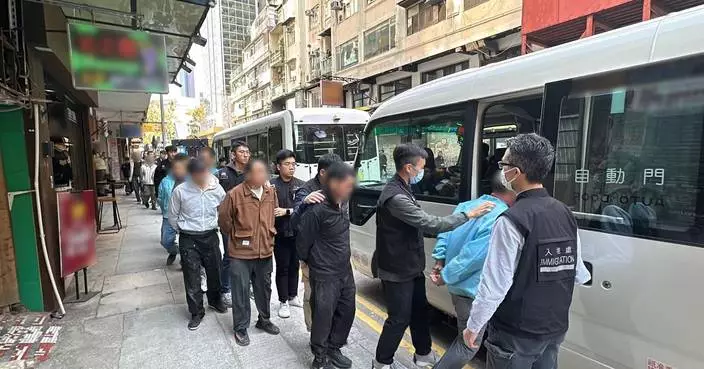SFST's speech at Green Tech Summit 2024
Following is the speech by the Secretary for Financial Services and the Treasury, Mr Christopher Hui, at the Green Tech Summit 2024 today (October 30):
Dr Hua Jindong (Vice-chairperson of the International Sustainability Standards Board), distinguished guests, ladies and gentlemen,
It is a profound honour to join you at the Green Tech Summit 2024. I extend my sincere gratitude to the Hong Kong University of Science and Technology and GoImpact for hosting this important event. Today, we gather to explore how green finance, technology, and innovation converge to create a sustainable future.
A call to action for our planet
Our planet is currently facing unprecedented challenges due to climate change. These challenges encompass environmental, economic, and social dimensions, demanding our immediate attention. The statistics deserve attention: Global climate finance flows reached approximately US$1.3 trillion in 2021 and 2022. However, to meet our climate goals, we must significantly increase annual investments to around US$9 trillion by 2030 and US$10 trillion by 2050. This gap signals an immense demand for green finance and innovation - one that we must address with urgency and creativity.
At this Summit, we aim to showcase Hong Kong's leadership in the green transition through five key strategies, and they altogether will significantly promote green transformation: the growth of green capital, recognition of sustainability standards, empowerment in carbon trading, encouragement of green financing, and nurturing green technology. Each of these strategies plays a critical role in shaping a sustainable future for our city and beyond.
Growth of green capital
Hong Kong is uniquely positioned to lead the green transition. As Asia's premier international financial centre, we have the infrastructure, expertise, and regulatory framework to channel international capital toward sustainable initiatives. As of June, over 230 ESG (environmental, social and governance) funds have been authorised by the Securities and Futures Commission, with assets under management exceeding HK$1.3 trillion. This represents a year-on-year increase of 19 per cent in the number of ESG funds and an 8 per cent increase in assets under management.
The Hong Kong SAR Government has been proactive in issuing government green bonds totalling HK$220 billion since 2019. These bonds have funded numerous local green projects and set benchmarks for potential issuers. In 2023 alone, the total green and sustainable debt issued in Hong Kong surpassed US$50 billion, with approximately US$30 billion being green and sustainable bonds - 37 per cent of the total market. This year, we expanded our Government Green Bond Programme to include sustainable projects and hence the programme is renamed Government Sustainable Bond Programme, reinforcing our commitment to a greener future.
Recognition of sustainability standards
Sustainability reporting is vital to our green finance ecosystem. In March, we published a vision statement outlining our approach to developing a comprehensive ecosystem for sustainability disclosure in Hong Kong. In the Chief Executive's Policy Address, it was announced that our roadmap for adopting the International Financial Reporting Standards - Sustainability Disclosure Standards (ISSB Standards)will be published within this year. Our aim is to position Hong Kong among the first jurisdictions to adopt the global standard, enhancing our credibility as a green finance hub.
To support our green transition, the Hong Kong Monetary Authority (HKMA) published the Hong Kong Taxonomy for Sustainable Finance in May. This taxonomy raises awareness about green finance and promotes a common understanding of green activities. It aligns with the taxonomies of the Mainland and the European Union, currently encompassing 12 economic activities across four sectors. The HKMA is advancing to the next phase of developing the Hong Kong Taxonomy, which will broaden its scope to include more sectors and activities crucial for our sustainable future.
Empowerment in carbon trading
We advocate for innovative approaches to enable decarbonisation and allocate green funding. A noteworthy initiative is the Core Climate platform, launched by the Hong Kong Exchanges and Clearing Limited in October 2022. This international carbon marketplace facilitates effective and transparent trading of carbon credits and supports transition towards net zero.
Core Climate is currently the only carbon marketplace that offers settlement in both Hong Kong dollar and Renminbi for international voluntary carbon credits. This platform enables participants to source, hold, trade, and retire voluntary carbon credits, ensuring robust and credible quality verified against international standards. Since its launch, the number of registered participants has tripled, reaching approximately 80 by the end of last year.
Encouragement to green financing
To encourage even more green financing activities, we launched the Green and Sustainable Finance Grant Scheme back in 2021. This initiative provides funding support for eligible bond issuers and loan borrowers, covering expenses related to bond issuance and external review services. We have extended this scheme by three years, running until 2027, and expanded its scope to include transition bonds and loans.
As of early October, we have granted approximately HK$280 million to support 470 green and sustainable debt instruments issued in Hong Kong, involving a total underlying debt issuance of over HK$1 trillion. This financial backing is crucial in incentivising industries to utilise Hong Kong's transition financing platform for decarbonisation.
Nurturing green technology
A key focus of our green transition is our commitment to promoting green fintech. Integrating fintech with green finance is essential for accelerating our transformation. We are actively working to expand the green fintech ecosystem in Hong Kong, positioning our city as a green fintech hub.
In June, we launched the Green and Sustainable Fintech Proof-of-Concept Funding Support Scheme. This initiative provides early-stage funding to technology companies and research institutes engaged in green fintech activities. Collaborating with local enterprises allows these innovators to co-develop projects that address challenges for the industry.
This scheme is not solely about financial support. It facilitates the completion of commercialisation and the proof-of-concept stages, paving the way for wider adoption of green and sustainable fintech solutions. Innovative fintech solutions will enhance our ability to mobilise capital for green projects and increase transparency in fund flows.
Against the backdrop of digitisation and global warming, fintech plays a crucial role in driving innovation in the financial industry and catalysing the low-carbon transformation of economic activities. The application of new technology can also help mitigate climate risk by forecasting environmental changes, improving supply chain efficiency, and identifying opportunities for innovation in low-carbon solutions.
This year, we launched the Prototype Hong Kong Green Fintech Map. Developed with various stakeholders, this tool provides a comprehensive overview of green fintech companies in Hong Kong and the services they offer. This map symbolises the integration of green finance and fintech, fostering the development of a robust green fintech ecosystem and accelerating the transition toward a green economy.
Finally, I want to emphasise the importance of nurturing talent for sustainable development. The future of green finance relies on the skills and knowledge of our workforce. To support the development of a green finance talent pool, we launched a three-year Pilot Green and Sustainable Finance Capacity Building Support Scheme. This initiative encourages practitioners, professionals, and students to participate in relevant training programmes.
As of mid-September, we have approved over 4 100 reimbursement applications, amounting to approximately HK$23.3 million. This investment in human capital is essential for equipping our workforce with the skills needed to navigate and thrive in the evolving landscape of green finance.
Closing remarks
In conclusion, the path to a sustainable future is not just a challenge; it is an opportunity for innovation and growth. Green fintech will play a pivotal role in this transition, enabling us to mobilise capital, enhance transparency, and support the development of sustainable solutions.
As we approach COP29 (29th Conference of the Parties to the United Nations Framework Convention on Climate Change) next month, let us intensify our efforts to forge a new chapter in sustainability. By collaborating across sectors and embracing innovative solutions, we can pave the way for impactful changes that resonate with green finance and technology. Together, we can turn our commitments into actionable strategies, ensuring a resilient and sustainable world for generations to come.
Thank you for your attention, and I look forward to seeing you in the next Summit here.
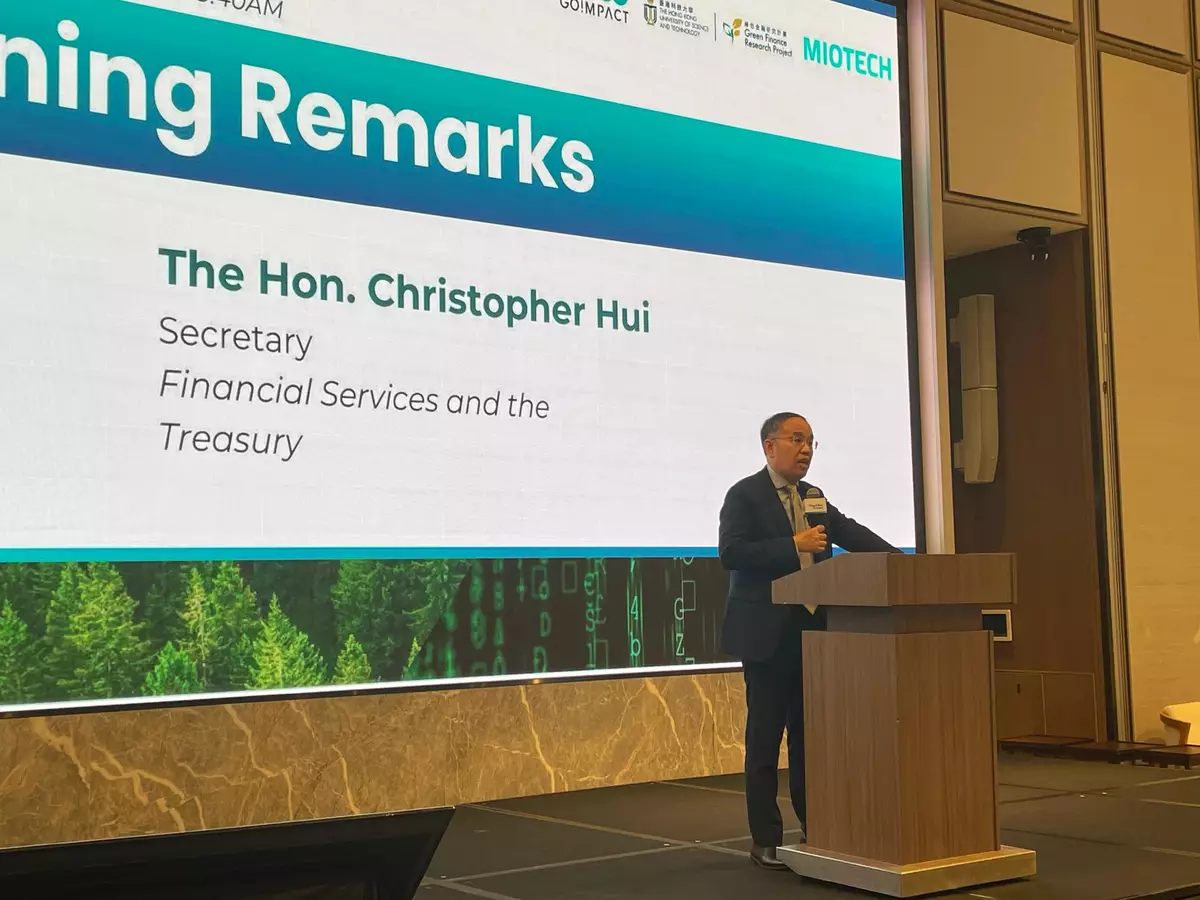
SFST's speech at Green Tech Summit 2024 Source: HKSAR Government Press Releases


